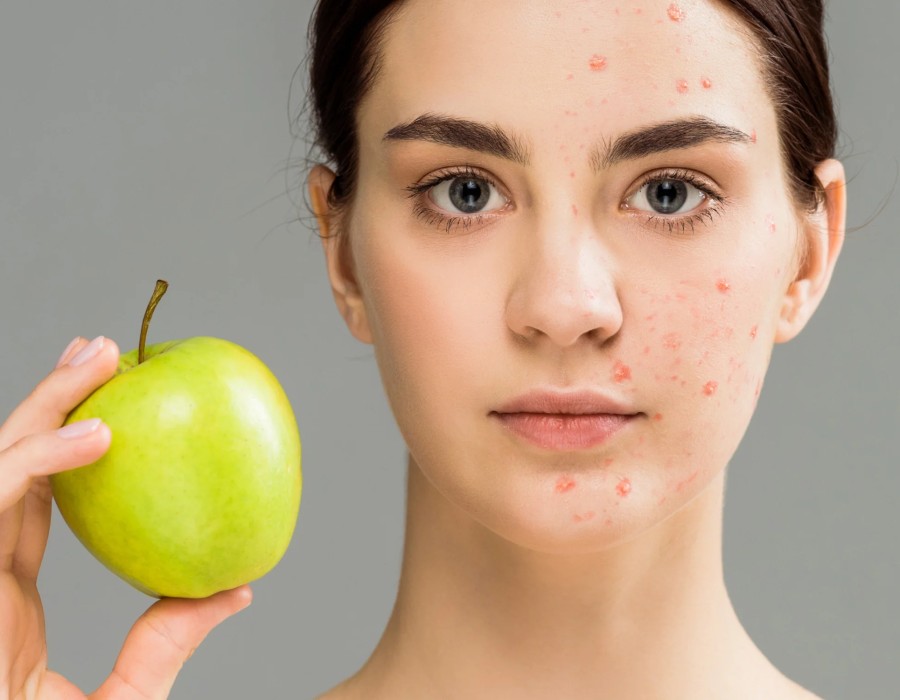Yes, dietary changes can significantly impact the health and appearance of your skin. Here are several ways in which dietary choices can contribute to better skin:
1. Hydration
Drinking an adequate amount of water throughout the day helps keep your skin hydrated from the inside out. Hydrated skin appears plump, smooth, and radiant. Aim for at least 8 glasses of water a day, adjusting based on your activity level and climate.
2. Antioxidant-Rich Foods
Foods rich in antioxidants, such as fruits (berries, oranges, grapes), vegetables (spinach, kale, bell peppers), and nuts (walnuts, almonds), help protect your skin from damage caused by free radicals. Free radicals can contribute to premature aging and dullness.
3. Omega-3 Fatty Acids
Omega-3 fatty acids, found in fatty fish (salmon, mackerel), flaxseeds, chia seeds, and walnuts, have anti-inflammatory properties that can help reduce redness and inflammation in the skin. They also support the skin barrier, improving hydration and overall appearance.
4. Vitamins and Minerals
- Vitamin C: Found in citrus fruits, strawberries, and bell peppers, vitamin C is essential for collagen production, which helps maintain skin elasticity and firmness.
- Vitamin E: Found in nuts, seeds, and leafy greens, vitamin E protects the skin from oxidative damage and supports overall skin health.
- Zinc: Found in seafood, lean meats, and nuts, zinc helps regulate oil production and supports skin healing.
5. Probiotics
Foods rich in probiotics, such as yogurt, kefir, and fermented vegetables (kimchi, sauerkraut), promote a healthy gut microbiome. A balanced gut microbiome can contribute to clearer skin by reducing inflammation and supporting overall immune function.
6. Limit Sugar and Processed Foods
High-sugar diets and processed foods can contribute to inflammation in the body, which may manifest as acne, redness, or other skin conditions. Opt for whole, unprocessed foods whenever possible and limit sugary snacks and beverages.
7. Green Tea
Green tea is rich in antioxidants and has anti-inflammatory properties that can help protect the skin from damage and reduce redness. Drinking green tea regularly or using skincare products containing green tea extract can be beneficial for your skin.
8. Avoid Trigger Foods
For some individuals, certain foods may exacerbate skin conditions like acne or eczema. Common triggers include dairy, gluten, and high-glycemic foods. Pay attention to how your skin reacts after consuming these foods and consider eliminating or reducing them if you notice a correlation with skin flare-ups.
9. Balanced Diet Approach
Overall, maintaining a balanced diet that includes a variety of nutrient-dense foods supports not only your skin health but also your overall well-being. Aim for a diverse range of fruits, vegetables, lean proteins, whole grains, and healthy fats to ensure you’re getting a wide array of essential nutrients.
Consultation with a Dermatologist
If you have persistent skin issues or concerns, consider consulting a dermatologist or a registered dietitian. They can provide personalized advice based on your specific skin type, concerns, and dietary habits to help you achieve and maintain healthy, glowing skin through optimal nutrition.





Comments